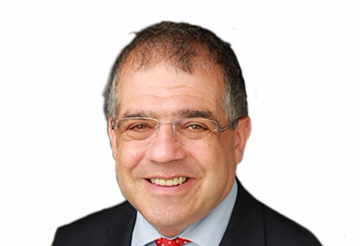What should I do if I think I have depression?
What actions you can take today if you’re struggling with your mental health.
What actions you can take today if you’re struggling with your mental health.



While it’s normal for everyone to be sad or upset occasionally, if these feelings are intense, constant or are affecting your quality of life, you may be suffering with depression.
Depression can be very difficult to cope with. But there are a number of things you can do if you think you have depression. In this blog, we give some information on what the typical signs of depression are, plus information on what you should do next if you think you have depression.
If you think you have depression, a good place to start is to learn more about the condition itself, starting with the symptoms. There are a wide range of signs and symptoms of depression, but here are some key ones to look out for:
Psychological symptoms of depression
Physical symptoms of depression
There’s lots more you can learn about depression alongside the symptoms. It might help you to understand your experiences and what the best approach is to getting back on track. Start with some of the following:
If you think you have a mental health issue, it’s vital to try and open up and talk to someone about your depression so you can get the support you need. This could be a close family or friend, or it could also be in a more clinical environment when talking to your GP. In fact, if you think you do have depression, booking an appointment with your GP is the best place to start, as you can get a medical diagnosis and objective advice on what to do next.
You could also look at joining a local club or group, such as a sports team, a book club or even volunteering. Things like this can act as a distraction from your negative thoughts, improve you wellbeing and help you to meet other people and form friendships.
If you’re worried you have depression, it’s important that you set yourself realistic daily goals. These can include things like aiming to have a shower, get dressed and leave the house at some point every day. Also, try to keep to a daily schedule such as cooking or eating at the same time. These practical steps can give you structure and purpose, and if you manage to achieve them every day, this can motivate you to gradually take on bigger goals.
Even though being positive may seem to be impossible when you’re feeling so low, it’s really important that you try to cultivate a more positive outlook. A way of doing this is to write down three things you’re grateful for every night before you go to sleep and reflect on them when you wake up in the morning.
You can also take conscious steps to discover what makes you happy, whether these are certain people, activities, places or pets. When you've identified them, try to incorporate as many of them as possible in your daily life.
When we’re struggling with our mental health, our physical health can suffer and this can make us feel even worse in the long run. If you think you have depression, try to make an effort to look after yourself physically and you may find that this helps you to feel better mentally. Try to:
